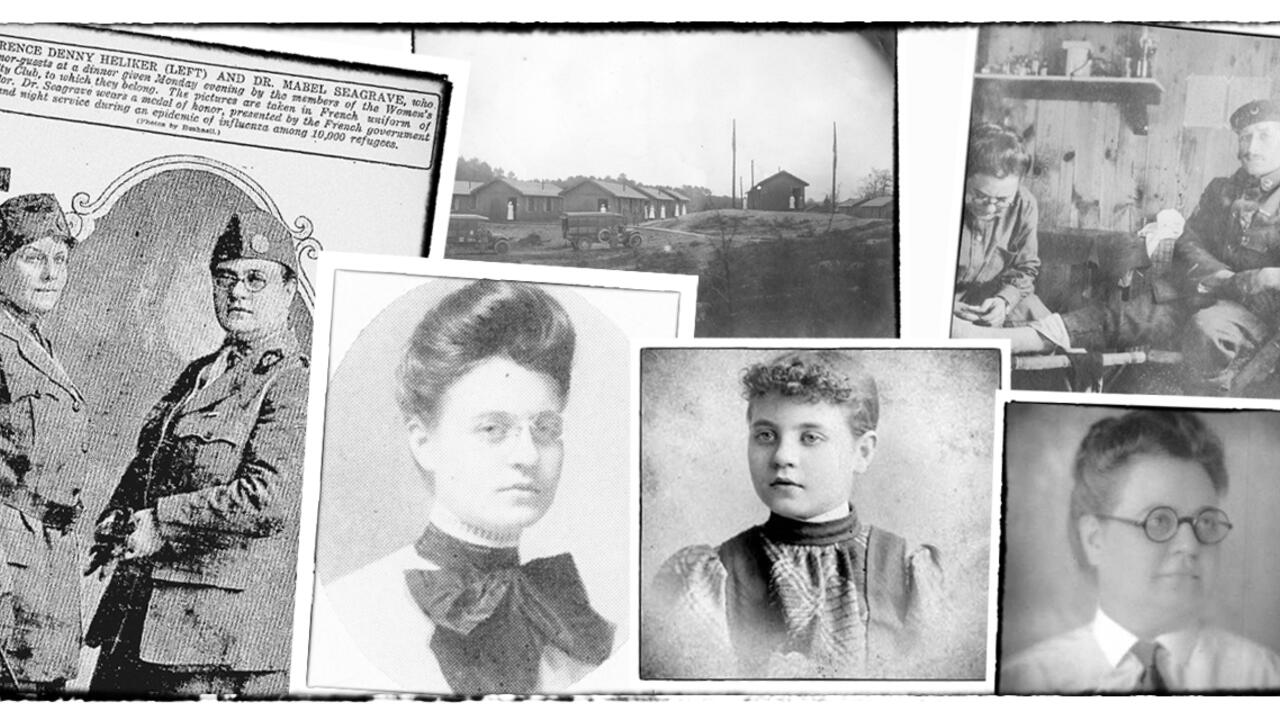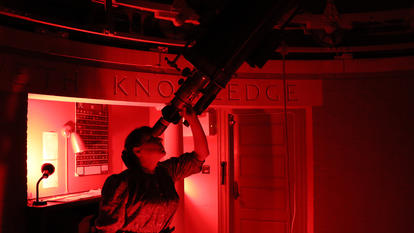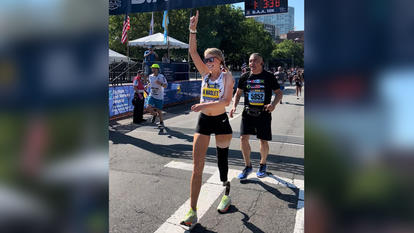Surgeon and War Hero Mabel Seagrave, Wellesley Class of 1905, Honored in Centennial Celebration of Suffrage

In the summer of 1918, as fighting intensified on the Western front and the deadly Spanish flu claimed countless lives, Mabel Seagrave, a 1905 Wellesley alumna and a graduate of Johns Hopkins Medical School, was among 78 female physicians sent to Europe during World War I by the Women’s Oversea Hospitals U.S.A.
Barely recovered from a bout of pneumonia, Seagrave took a military steamer to France, joined by a Wellesley friend and fellow suffragist, Florence Denny Heliker, class of 1904, an X-ray technician. Clad in khaki uniforms, they landed at a battlefield evacuation site, where 12-stretcher ambulances arrived hourly. Later transferred to a refugee hospital near Labouheyre in southern France, they worked 18-hour days with only two other doctors and a handful of volunteers, attending to thousands of patients, many of whom died of typhoid, dysentery, and influenza. With “not a man in the outfit,” they had to do “all [the] heavy work…including making coffins,” said Seagrave to a local reporter upon her return to the States. “Our plumber was a former New York actress. Our carpenter was just out of a fashionable girls’ school. Our chauffeurs were all girls.”
During the war and until her death at age 53 in 1935, Seagrave followed the Wellesley motto, Non Ministrari sed Ministrare: Not to be ministered unto, but to minister. “Public service was the hallmark of her medical career,” said John C. Hughes, chief historian at Legacy Washington. The organization, which documents extraordinary stories in the history of Washington state, will include Seagrave, a longtime Seattle resident, in its “Ahead of the Curve” exhibit celebrating the state’s adoption of the 19th Amendment in 1910—10 years ahead of the nation. In connection with the national suffrage centennial in 2020, the exhibit will feature trailblazing Washington women at the state capitol in Olympia, online profiles, lesson plans, and a statewide student contest on the theme of equal rights.
The courage and determination of female volunteers, many of them graduates of women’s colleges, helped advance the cause of suffrage back home. Described as a superwoman by another volunteer, Seagrave traveled up to 40 miles twice a week to village clinics in addition to her duties at Labouheyre. After the armistice, she volunteered to run a Red Cross field hospital in the town of Foug in northeastern France. She earned a Médaille d’honneur from the French government and a Merit of Honor award from the National American Woman Suffrage Association.
Photographs of her show a somber, bespectacled woman in a starched white shirt and tie, but “Dr. Mabel,” as she was known to her friends, enjoyed fast horses, did a mean impersonation of Teddy Roosevelt, and was loved for her kind smile. At Wellesley, Seagrave had excelled in math, biology, and chemistry. She was a literary editor of the College News and treasurer of the executive board of Student Government, and she helped secure the championship for her class in the College’s 1902 Field Day by winning the low-hurdles event.
After her return from Europe, Seagrave had a thriving OB-GYN practice, was accorded privileges at all Seattle hospitals, and was named chief of staff at Seattle General Hospital, and in 1928, she was one of two women elected to the American College of Surgeons. She oversaw dental clinics for underprivileged children and was also active in the Wellesley Club, the Women’s Medical Club of Seattle, the Women’s University Club, and the Soroptimist club, an association committed to improving the lives of women and girls around the world.
In a letter to friends after Seagrave’s death, fellow Wellesley grad Willye White, class of 1909, wrote: “She was always putting some youngster through college and I suppose never turned down anyone who asked for help. That’s who she was.”
“Dr. Seagrave’s remarkable life sums up our theme,” said Hughes. “War hero, influential surgeon, lecturer, and raconteur, Mabel Seagrave would qualify as a remarkable woman in any era. In hers, she was extraordinary.”



